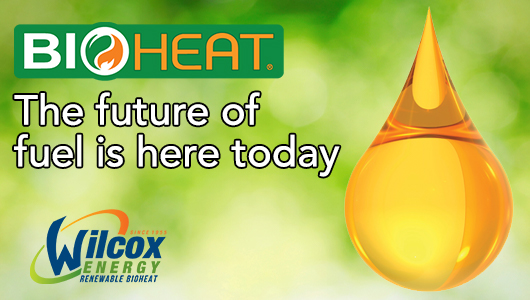Contents

Wilcox Energy has been serving the local community in Westbrook, CT, for over 65 years, providing reliable heating solutions to homes and businesses in the area. As an HVAC company, we understand the importance of staying current with advancements in technology and alternative heating options.
One such alternative is the heat pump, which has gained popularity in recent years as a more environmentally-friendly and energy-efficient option compared to traditional heating systems.
Despite the growing interest in heat pumps, Wilcox Energy recognizes that they may not be the best option for all customers, particularly those living in colder climates such as southern Connecticut.
While heat pumps can be an effective supplemental heating source in milder climates, they can lose efficiency as temperatures drop, making them less reliable in extreme cold. In contrast, traditional heating systems can provide consistent performance in cold weather, making them a more suitable primary heat source for homes and businesses in the area.
Heat Pump Vs. Traditional Heating Systems: What To Consider
Which Home Heating System Is Right For You?

Traditional heating systems, such as bioheat heating oil, natural gas, and propane boilers and furnaces, are commonly used for home heating in many parts of the United States. They have some advantages, such as:
- High efficiency
- Dependability
- Reliability
- Easy to install & maintain
- Superior comfort
Heat pumps are an alternative to traditional heating systems and have gained popularity in recent years in various parts of the country. Heat pumps are powered 100% by electricity and work by transferring heat from outdoor air into the home, providing an energy-efficient method of heating.
However, heat pumps do have limitations, ESPECIALLY in colder climates like Connecticut. As temperatures drop, heat pumps lose efficiency and may require backup heat sources to maintain a comfortable temperature.
Consequently, as the winter progresses and outside temperatures plummet, the home becomes less comfortable inside. This is a serious limitation and consideration for Connecticut homeowners.
At Wilcox Energy, we advise our customers to keep their traditional heating systems and to consider a heat pump solution for a supplemental heating solution to specific areas of the home, such as a room addition, 3-season room, etc.
Bioheat® Heating Oil: What To Consider

In addition, those that use fuel oil for home heating can reduce their carbon footprint by ordering their oil from Wilcox Energy. We offer Bioheat® heating oil, a fuel made from biodiesel, which comes from renewable agricultural sources, such as recycled oils, fats, used cooking oil, canola oil, soybean oil, and inedible corn oil. This fuel is compatible with existing heating systems, so there is no need for expensive HVAC upgrades to make your home more environmentally friendly. Give us a call today to find out more!
Comfort Levels Of Traditional Heating Systems Vs. Heat Pumps
In terms of reliability and comfort, traditional heating systems have the advantage.
A hydronic heating system is often considered more comfortable than a heat pump for homeowners in colder climates for several reasons. Both systems have their advantages, but hydronic systems tend to provide a more consistent and comfortable heat in colder regions.
- Even heat distribution: Hydronic heating systems use a network of pipes filled with hot water or steam to distribute heat throughout the home. These pipes can be installed under floors, in baseboards, or as radiators. The heat is radiated evenly across the surface, providing a consistent temperature throughout the space. In contrast, heat pumps rely on forced air distribution, which can create uneven temperatures and drafts in a room.
- No forced air: The hydronic system’s reliance on radiant heat rather than forced air can lead to better indoor air quality. Forced air systems, like those used with heat pumps, can circulate allergens, dust, and other airborne particles throughout the home, potentially causing discomfort or health issues for sensitive individuals. Radiant heat does not rely on air circulation, reducing the movement of allergens and providing a more comfortable environment.
- Lower operating noise: Hydronic systems typically operate with less noise compared to heat pumps. While heat pumps rely on compressors and fans, which can be noisy, hydronic systems use a boiler or water heater and a circulating pump that produces minimal noise. This quieter operation can contribute to a more comfortable and peaceful living environment.
- Efficiency in colder climates: Heat pumps lose efficiency as the outdoor temperature drops, making them less effective and more expensive to operate in colder climates. Hydronic heating systems, on the other hand, maintain their efficiency regardless of the outdoor temperature. This means that homeowners in colder climates can enjoy consistent, comfortable heat without worrying about increased energy bills.
- Compatibility with multiple fuel sources: Hydronic systems can be powered by a variety of fuel sources, including natural gas, propane, oil, or electricity. This flexibility allows homeowners to choose the most cost-effective and environmentally friendly option for their location. Heat pumps, on the other hand, are primarily powered by electricity, which may be less advantageous in regions with high electricity costs or limited renewable energy sources.
Overall, a hydronic heating system can offer more comfortable and consistent heat, better indoor air quality, quieter operation, increased efficiency, and fuel source flexibility for homeowners in colder climates, making it a preferable option compared to heat pumps.
Environmental Impact Of Heating Systems

It’s worth noting that traditional heating systems have been criticized for their greenhouse gas emissions. However, traditional heating systems come with impressive AFUE efficiency ratings, which means that these units are capable of converting fuel into usable heat, producing very little emissions in the process.
Furthermore, it’s important to consider that electric heat pumps are only as environmentally friendly as the source of their electricity. According to the U.S. Energy Information Administration (EIA) Connecticut obtains electricity from a variety of sources as follows:
- 55% of the state’s electricity comes from burning natural gas
- 38% comes from nuclear energy
- 3% solar
- 2% biomass
- 1% hydroelectric
- 1% coal
While consumers may think that installing an electric heat pump is saving the environment, the reality is that these electric systems are still utilizing fossil fuel sources.
Additionally, when your home is heated by a traditional heating system, it is not dependent on the power grid. They can provide uninterrupted heat even during a power outage. There are parts of the country that have experienced electrical disruptions during times of peak demand for heat. Unfortunately, homeowners that heat their house with a heat pump find themselves in a situation where they have absolutely NO HEAT!
These outages resulted in thousands of homeowners facing situations of no heat. For example, in February 2021, the state of Texas suffered a major power crisis, resulting in no heat for many homeowners during three severe winter storms.
Conclusion
In conclusion, while heat pumps have numerous benefits, such as energy efficiency and environmental friendliness, they are not the best option for every homeowner.
Factors such as local climate, heating needs, the age and efficiency of the current heating system, available incentives and rebates, long-term plans for the property, and lifestyle and comfort preferences should all be considered before making a decision.
For properties in colder climates, like Connecticut, where temperatures can drop below freezing, traditional heating systems provide a more reliable and comfortable heating solution.
What’s Next?

It’s important to consult with a professional, such as Wilcox Energy, to assess the heating needs, efficiency, and other factors of a property to determine the best heating solution.
We can discuss the pros and cons of a traditional heating system versus a heat pump. Also, we can advise you on the available incentives and rebates for new heating system installations, as well as the long-term cost savings and benefits.
Contact Wilcox Energy today for a no-obligation, professional quote for a new heating system.
For more information about our HVAC services or Bioheat® heating oil deliveries, be sure to contact Wilcox Energy. You can click here to contact us, or you can call us at (860) 399-6218 to find out more. We offer a full line of heating and cooling repairs, maintenance services, and installations. Click the link to view our service area.
